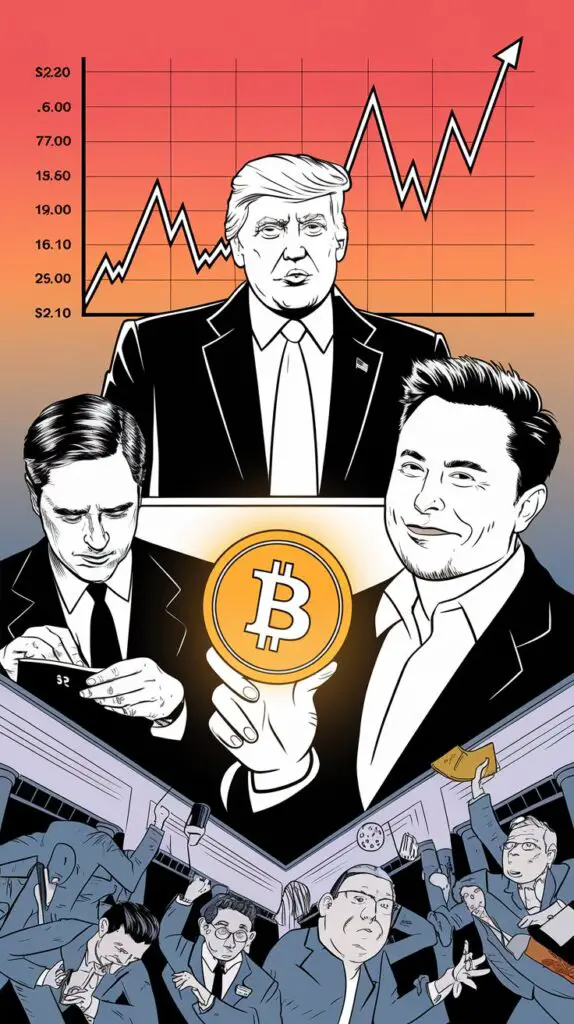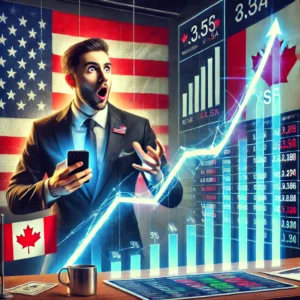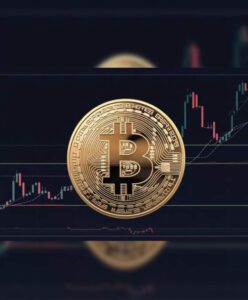Trump’s Trade Policies May Push Inflation Higher, BlackRock CEO Warns—Musk Sounds Crypto Alarm!
Could Trump’s Trade Policies Lead to Higher Inflation?
With speculation growing over former President Donald Trump’s potential return to office, financial experts are raising concerns about how his trade policies might impact inflation. BlackRock CEO Larry Fink recently warned that imposing new tariffs and trade restrictions could drive up costs for businesses and consumers, adding pressure to an already fragile economy.

Fink’s concerns stem from the idea that higher import taxes often lead to price hikes on everyday goods. While the intent behind these policies is to boost domestic production, history has shown that trade wars frequently disrupt supply chains and increase costs. If inflation surges again, the Federal Reserve may have to keep interest rates high for longer, potentially slowing economic growth and making borrowing more expensive.
Elon Musk’s Take—Could Crypto Be a Solution?
Amid growing economic uncertainty, Tesla and SpaceX CEO Elon Musk has voiced concerns about how restrictive trade policies might affect financial markets. A long-time proponent of decentralized finance, Musk suggested that economic instability could push more people toward cryptocurrencies as an alternative store of value.
“Markets struggle when uncertainty takes over,” Musk stated in a recent discussion. “Digital assets offer another way to navigate financial instability.” His perspective aligns with those who believe that Bitcoin and other cryptocurrencies could act as a hedge against inflation and economic disruptions.
For years, some investors have turned to digital assets during times of financial instability. While Bitcoin and other cryptocurrencies remain volatile, many see them as a potential safeguard when traditional markets face pressure from external economic factors
How Are Markets Reacting?
Following Fink’s warning, stock markets exhibited increased volatility, particularly in inflation-sensitive sectors. At the same time, cryptocurrency traders closely watched Bitcoin and Ethereum, speculating on potential price movements if inflation fears drive more investors toward alternative assets.
Analysts remain divided on whether Trump’s trade policies would trigger a new inflationary wave. Some argue that prioritizing domestic production could eventually help stabilize costs, while others worry that global supply chain disruptions would make goods more expensive. Regardless of the outcome, discussions about economic policy have once again brought cryptocurrencies into the spotlight as investors explore alternative financial strategies
What’s Next for Investors?
With Trump’s potential policies still unfolding, investors are closely watching how trade decisions might influence inflation and economic stability. If tariffs and restrictions escalate, inflation concerns could reshape market trends and investment strategies.
As global economic policies evolve, the role of digital assets in financial security remains a topic of debate. While cryptocurrencies have yet to prove themselves as a definitive hedge against inflation, they continue to gain attention as economic uncertainty keeps financial markets on edge.












